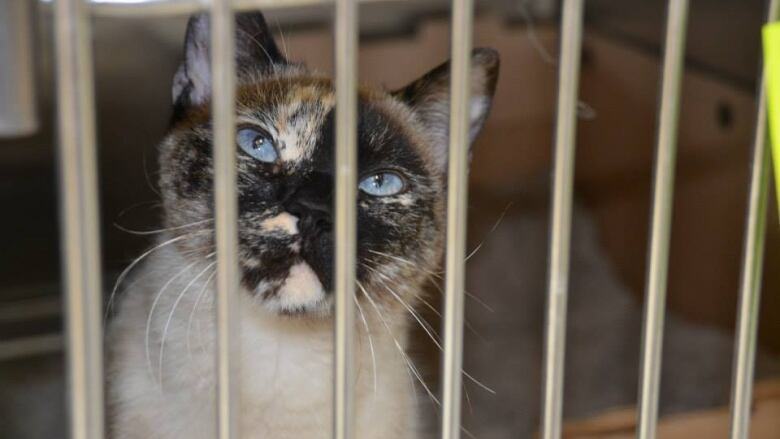Ontario animal cruelty officers encounter dangerous situations: report
OSPCA inspector calls report an 'accurate depiction' of working conditions

A new report paints a disturbing picture of the working conditions that investigators face within the Ontario Society for The Prevention of Cruelty To Animals.
It shows that animal cruelty officers sometimes encounterextreme physical, psychological and emotional demands.
The studyalsoreveals that investigators often attend calls with little information about the situations they are gettinginto because they do not have access to police data from theCanadian Policing Information Centre.
"There's been a number of calls that I've attended personally over the past few years where going into that call [I] had no information about what was happening there," OSPCA inspectorBrad Dewar said in response to the report.
"Sometimes we are dealing with violent individuals who we've received a report surrounding maybe an animal that's been abused or beaten or even worse, involved in other illegal activities, and not knowing whether or not there's firearms that's concerning."
The report entitled "Difference Makers: Understanding and Improving the OSPCA's Animal Cruelty Investigation Work" surveyed 64per cent of OSPCA officers 58 people over the past year.
Many of the challenging conditions that investigators face are in northern Ontario, according to co-author Kendra Coulter.
Working conditions especially difficult in the north
"We heard some of these pretty intense stories about these very long drives, people being on their own, people having very unreliable cell phone service," she said.
"Many of them are also relying on Blackberries, which are quite old and unreliable, so they will shut off or certain functions will automatically shut off to try to save battery."
Dewar said those details paint an accurate depiction of what his coworkers deal with on a daily basis.
"Hopefully it just brings to attention exactly what our officers deal with on a day-to-day basis, which members of our community probably aren't likely aware of exactly the situations that these officers walk into each and every day," he said.
The report includes five recommendations on how to improve the service:
- Ontario government should provide the funding to equip OSPCA officers with two way radios or spot trackers.
- BlackBerry Limited ought to donate new phones to OSPCA officers.
- OSPCA officers should get access to the Canadian Policing Information Centre.
- OSPCA could benefit from more funding and resources.
- Larger conversation isneeded about OSPCA, animal cruelty investigations in Ontario and how to create a more humane province.
The broader discussionincludesrethinking how the OSPCA works, Coulter said.
"It's perhaps time whether we think about whether the Ontario OSPCA should be a charity or perhaps whether the law enforcement dimension should be separate from the organization's charitable and sheltering functions," she said.
"Or perhaps whether animal cruelty investigations should become completely publicly funded, like another police force or a component of an existing police force."
The Ministry Of Community Safety and Correctional Services, which oversees the OSPCA, did not immediately respond to thereport's findings.












_(720p).jpg)


 OFFICIAL HD MUSIC VIDEO.jpg)
.jpg)



























































































